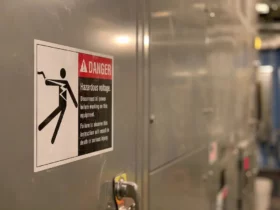You have decided to move onto a new challenge.
What is the reasoning behind it? You are not satisfied with how your boss is treating you?
You are not making enough money? Do you have an opportunity that’s better for you and you are not going to let fear stop you in making this change?
Well, whatever the reason is, it is scary to quit and writing a resignation letter is something that you must consider doing.
Even if you might feel like you haven’t been fully respected and appreciated at your job, your goal must be to leave on a professional note.
After all, it’s a reflection only of you and nobody else.
Writing a resignation letter will help you formalize all of the details and inform your employers of your departure from the company.
But that doesn’t really help you figure out how to do it, so keep reading as we give some of our best tips on writing a resignation letter.
What is a Letter of Resignation?
A letter of resignation is your way of expressing your desire and intention to leave your position at the company.
This is the document that finalizes your intention and details of your leaving and could include reasons as to why is that happening.
This doesn’t have to be a tough process, especially if you learn how to act respectful and write a good resignation letter.
Before this happens, of course, you should have a one-on-one conversation with your employer, informing them directly of your decision and your plans of resigning.
The resignation letter is more like a follow-up.
Remember, this might become part of your employee file, so it’s of utmost importance to leave a good impression.
How Do You Write a Resignation Letter?
This can be a very uncomfortable task, not only because of the fear of change but because it is just hard to let someone know you will be going and have that done in a formal and professional way.
That’s why we have some tips on how to write a resignation letter.
- Short and Sweet – No use in dragging it out. The gist of it is; you are leaving, and there’s nothing they can do to stop you. You don’t have to justify why you are leaving the position at the company. You can provide reasoning but that must be better done in person, while the resignation letter should be short and sweet.
- Reasoning – As we have mentioned, this is better done in person, but if you decide to provide some reasons for leaving, like salary-wise, you may even get a counteroffer.
- Act professional – Nothing worse than acting rude. Just because your current state of mind is set on leaving, it doesn’t mean that you should act unprofessionally. Don’t burn any bridges, and make sure you use a formal and professional language throughout your letter.
- Be thankful – At the end of the day, I am sure you have learned a lot on the job, you were given an opportunity and someone took a chance on you (likely over other people). That just deserves a ‘thank you’.
- Don’t criticize – Your reasons for leaving might be that your employer hasn’t treated you in a way you expected or thought you deserved to be treated. Still, that won’t justify your criticism of them. Be smart, you may need a letter of recommendation or a reference in the future.
- Offer your help in the transitioning period – Leaving your employer high and dry might not be the most professional thing you can do, so if you think that transitioning period might be hard for your employer, offer your help.
- Be positive – It’s not the end of the world that you are leaving. Anything that you or your employer have been through won’t matter very soon, so try to leave a positive comment as you should strive to be that type of person.
What to Include in the Resignation Letter?
There are some things you must include in your resignation letter.
- Your contact information – This is so the company can get in touch with you if they want to further discuss your resignation.
- Your Last Day – Every resignation letter should include the last day to work and any other requests or details. This would ease the transition and help your employer be prepared.
How to Submit Your Resignation Letter
There are not many options here outside of submitting your resignation letter in person, or by email.
You should be aware that one isn’t necessarily better than the other, and what you decide to opt for might depend on different factors.
If most of your work revolves around email, and your company is all about paperless culture, this will definitely be the way to do it.
Also, a lot of people decide to go the email route because they don’t want to face the uncomfortable talk with their boss, but you should know that this is considered necessary, and in the long run, it’s the best route to go with.
Resignation Letter Format
Are you struggling with how to format a resignation letter? Try to follow the advice below and you’ll have a good looking and formatted resignation letter in no time.
- First Paragraph – The first paragraph should consist of your statement that you have decided to leave the company, a date that resignation will take effect, and possibly your reasoning behind it.
- Second Paragraph – Now, take the opportunity to be thankful to your employer for the opportunities provided on your job.
- Final Paragraph – This paragraph should be dedicated to you offering your assistance in transition and trying your best to remain on good terms with your employer.
- Your contact information – This is the usual; your phone number, first and last name, address and email. It’d be best if the contact information is positioned at the top, but people often put it at the bottom, which is totally fine.
- Closing and signature – Respectful closure and a handwritten signature, and you are done!
Resignation Letter Samples
Instead of writing a sample of my own, I have decided to link out some of the great examples the Balance Careers have done. They have a list of all of the different resignation letter samples for any occasion. They went away and created short notice letters, the letter you write when you are seeking better opportunities and many others.
Take a look at this post for the best list of resignation letter samples you can use today.












